
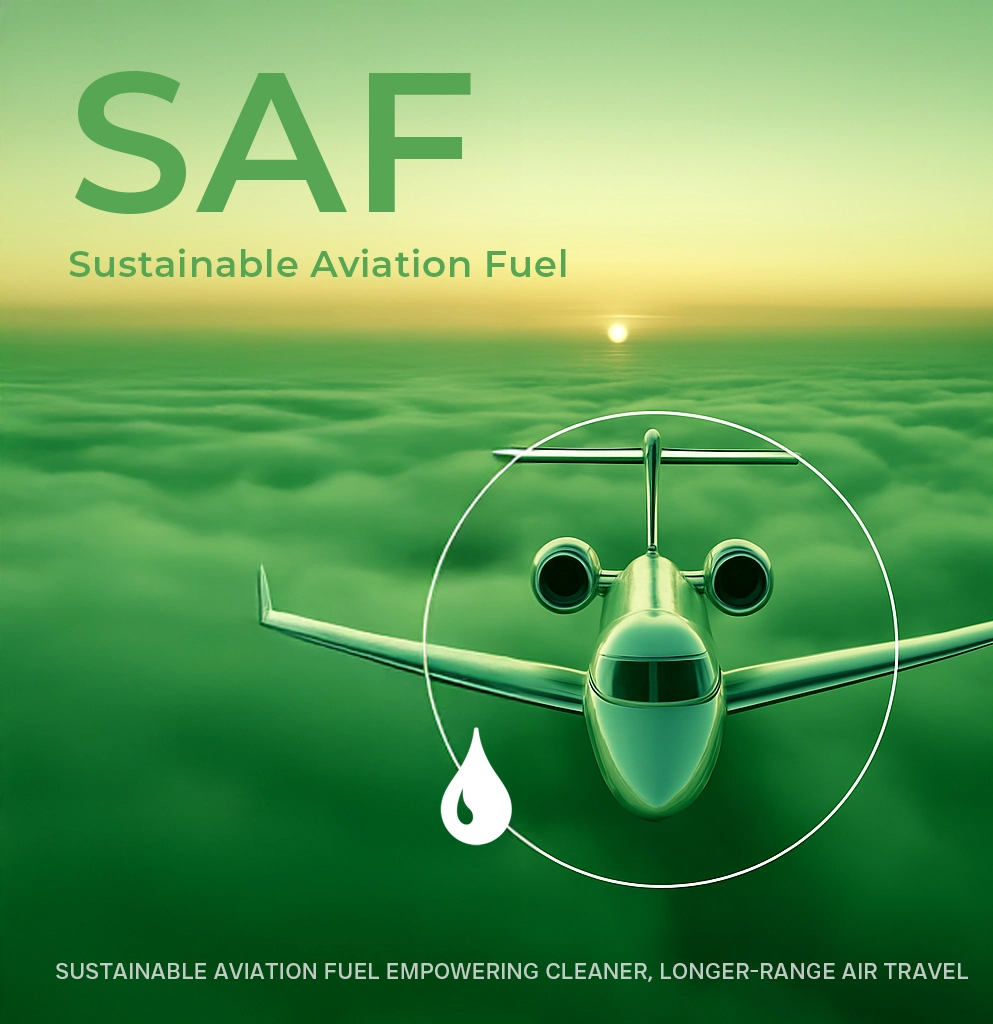
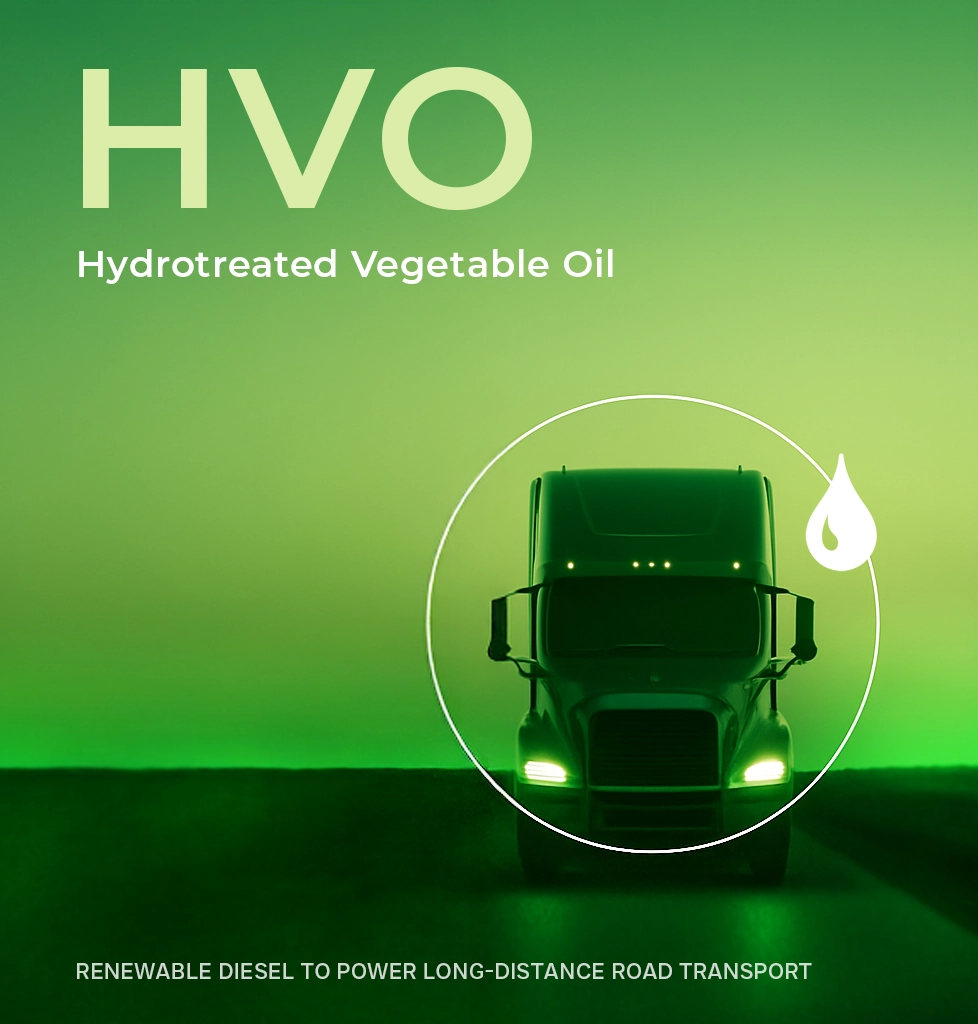
The Climate Challenge & The Role of Sustainable Fuels
Aviation currently contributes 2-3% of global CO2 emissions. While that number may seem modest, it doesn’t tell the whole story. When factoring in non-CO2 effects, the sector’s total impact on climate change is significantly higher.
And the challenge is only growing.
According to IATA projections, global air travel demand is set to double by 2040 — a 200% increase in activity. Without decisive action, aviation emissions could account for up to 22% of global emissions by 2050.
The Solution: Sustainable Fuels
Sustainable Aviation Fuel (SAF) offers a proven pathway to reduce lifecycle carbon emissions by up to 80%, while being fully compatible with today’s aircraft and infrastructure. Together with Hydrotreated Vegetable Oil (HVO) for road transport, these fuels are essential to decarbonizing the transportation sector.

SAF (Sustainable Aviation Fuel)
A next-generation fuel for aviation that significantly reduces carbon footprint without requiring changes to aircraft engines or infrastructure.

HVO (Hydrotreated Vegetable Oil)
A renewable diesel substitute for road transport (cars and trucks), fully interchangeable with fossil diesel.
Advantages
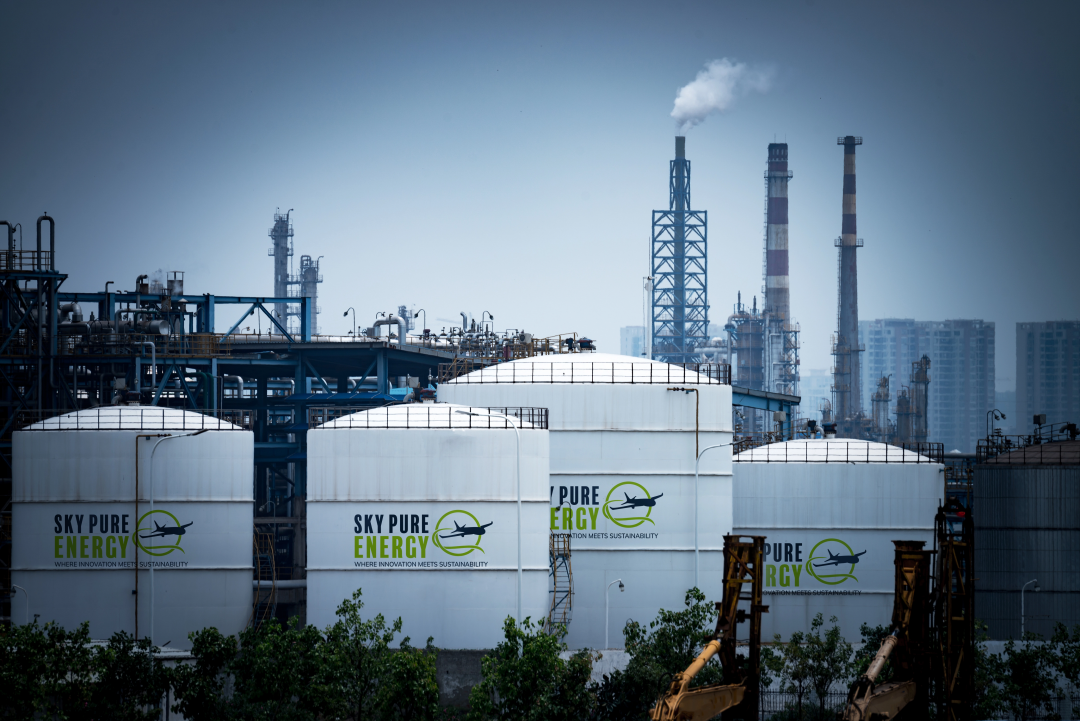
Our SAF (sustainable aviation fuel) and HVO (Hydrotreated Vegetable Oil) is made from non-edible agricultural residues, fats, oils, and greases. This includes animal and vegetable oils, their processing waste, as well as catering waste oil and used cooking oil. We promote farming practices that protect our land and water while safeguarding global food security.
Animal and vegetable oils, their processing waste, as well as catering waste oil and used cooking oil.
The feedstock is biomass and its substitutability with fossil fuels
Consideration of carbon emissions from land use change (LUC) when using palm oil as raw material.


The Process
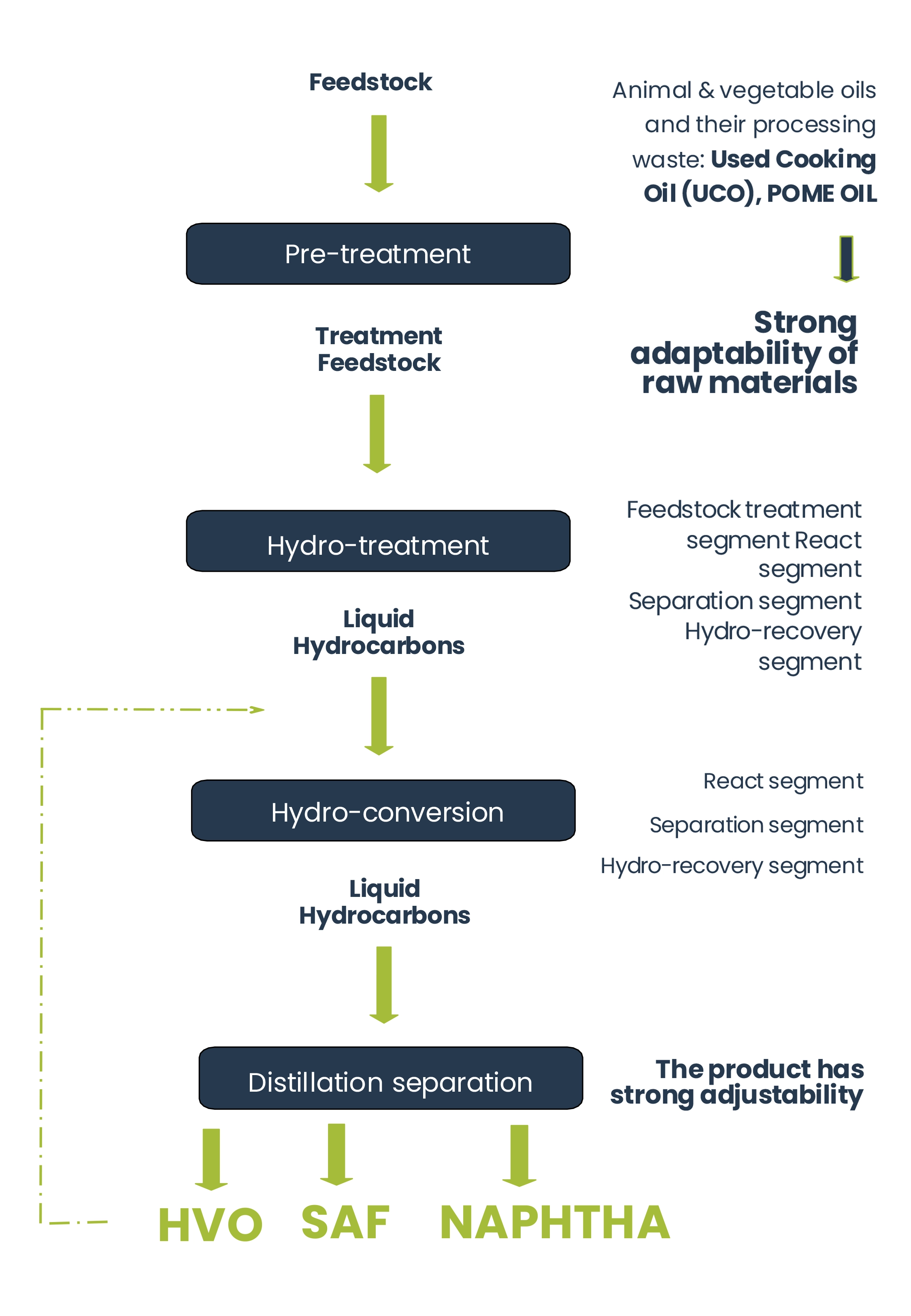
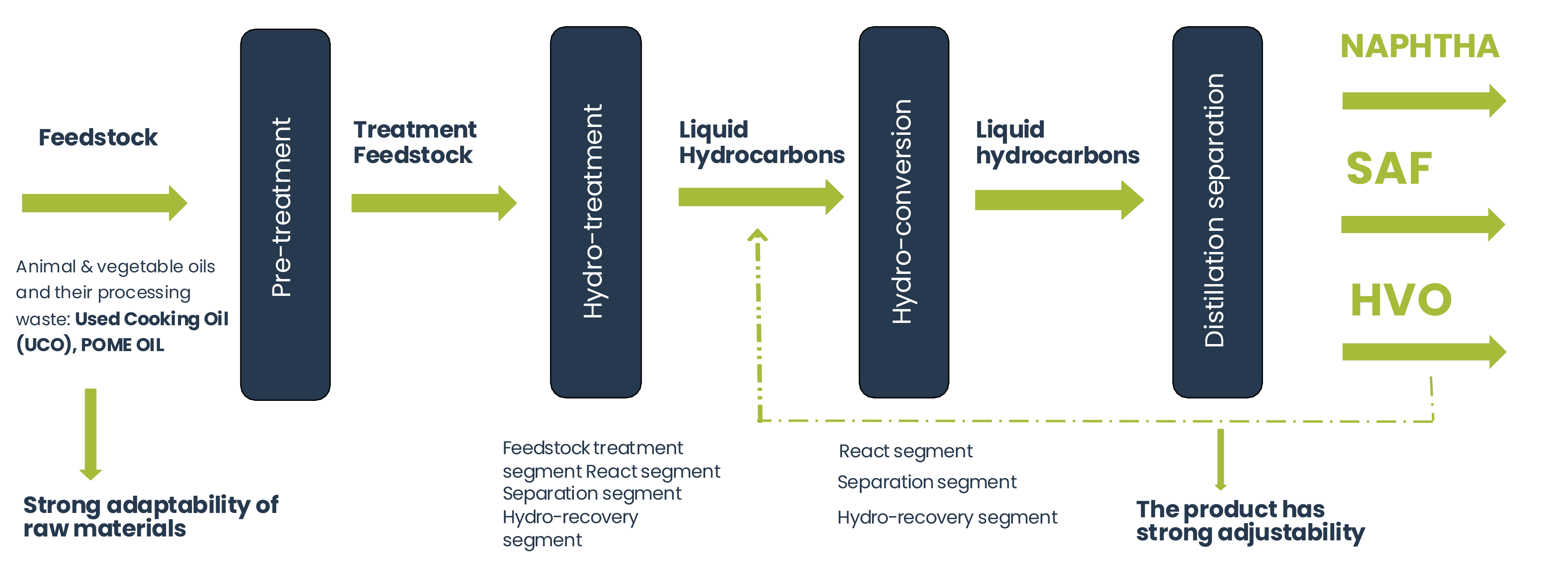
SUPPLY CAPACITIES
Consolidation aimed at reducing freight costs:
Cargoes can be consolidated into a single 30,000 to 40,000 MT shipment and transported on one vessel to optimize logistics and reduce costs.


